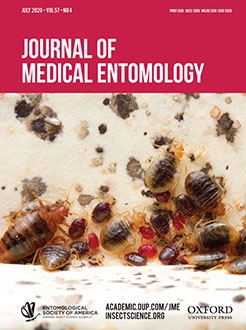Variation in resource utilization plays a significant role in determining the success or failure of a species. Generalist species across numerous taxa have exhibited success in feeding strategies for a variety of reasons. This study investigated the colonization and oviposition habits of a generalist carrion-feeder, Hermetia illucens L. (Diptera: Stratiomyidae), to varying conditions of carrion decay and colonization. Oviposition treatments consisted of combinations of variably aged decaying rats, both uncolonized and colonized with a heterospecific carrion-feeder.The black soldier fly exhibited a greater preference for oviposition on aged carrion, regardless of carcass colonization status. However, when presented with the option to colonize a plant-based diet, there was a significantly greater (40.4%) oviposition response to this diet. Results of this study highlight the ability of the black soldier fly to colonize fresh or aged carrion with or without a primary colonizer present, further supporting the recognition of this species as a generalist.These data demonstrate potential inaccuracies in the utility of H. illucens as time of colonization indicator species for legal investigations, and, in some regard, can be considered an exploitative niche-specialist (i.e., relying on plant–carrion interface for immature development) when found in association with carrion.
How to translate text using browser tools
13 February 2020
Influence of Substrate Age and Interspecific Colonization on Oviposition Behavior of a Generalist Feeder, Black Soldier Fly (Diptera: Stratiomyidae), on Carrion
Zanthé Kotzé,
Jeffery K. Tomberlin
ACCESS THE FULL ARTICLE
It is not available for individual sale.
This article is only available to subscribers.
It is not available for individual sale.
It is not available for individual sale.

Journal of Medical Entomology
Vol. 57 • No. 4
July 2020
Vol. 57 • No. 4
July 2020
carrion
niche specialist
oviposition




